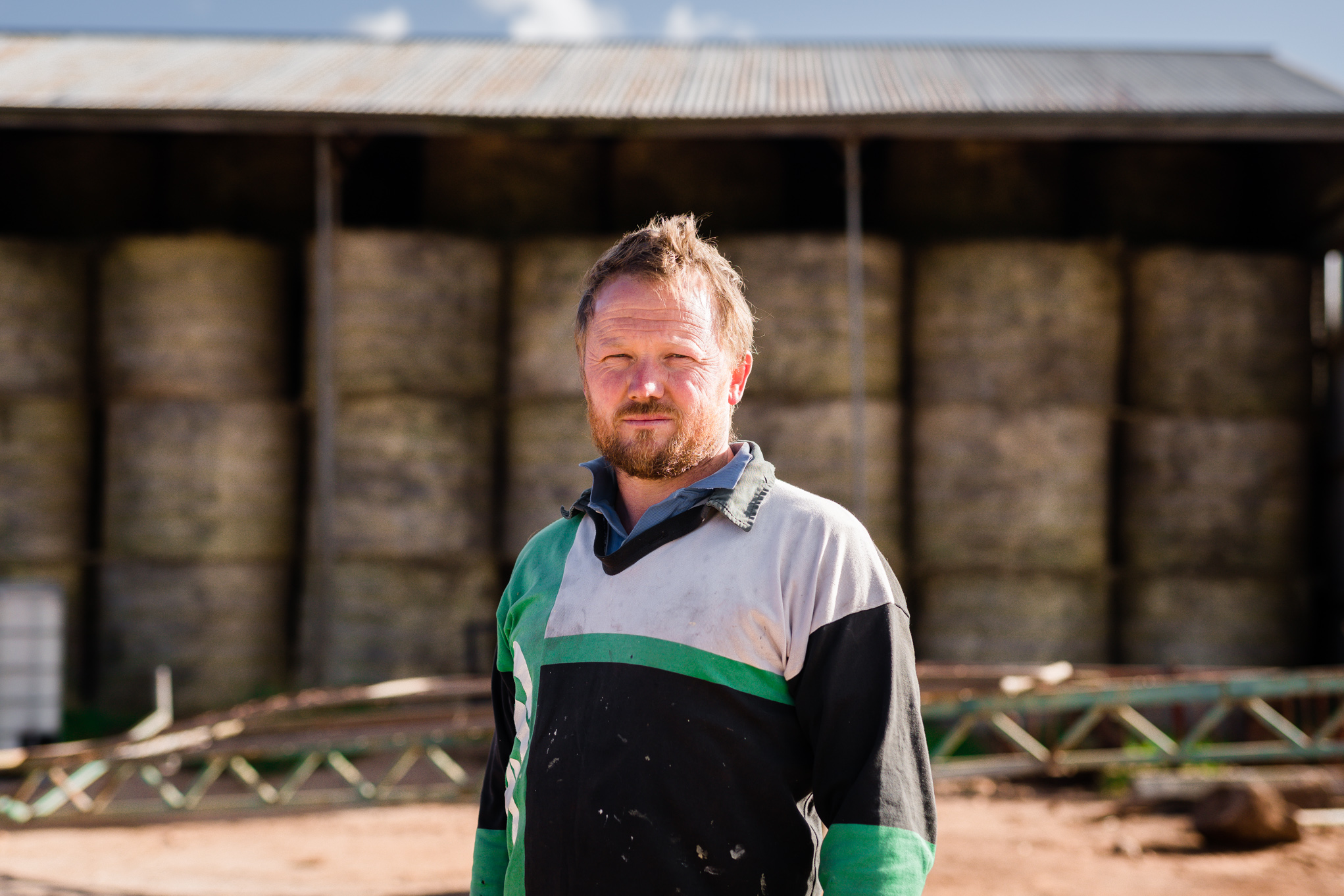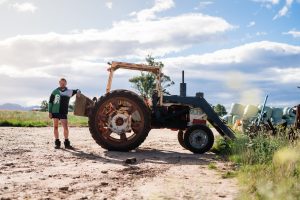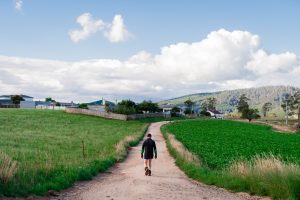
AUSVEG’s 2022 Federal Election priorities
28 February 2022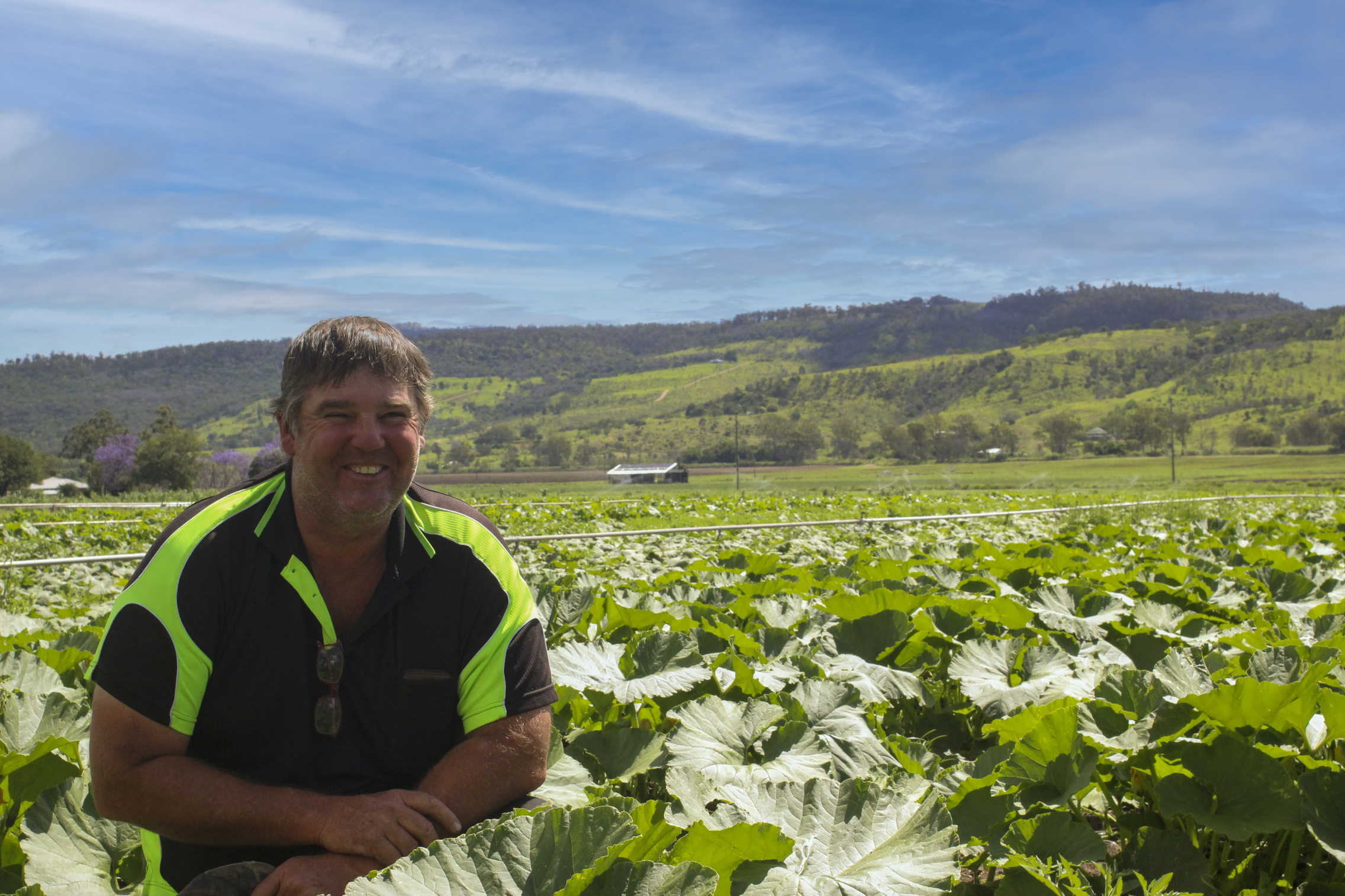
Overcoming pandemic challenges with Growcom’s Fair Farms
28 February 2022Soil First Tasmania is a farmer-led organisation that focuses on the sustainability and regeneration of soil and water resources. It supports a community of farmers across Tasmania who want to conduct on-farm trials to find out how they can keep their soils in good conditions and reduce inputs such as fertilisers and pesticides. Importantly, the group provides a platform to share what they have learned on their own farm discuss new ideas and develop networks.
Michelle De’Lisle reports on the group’s latest activities that involve soil amendment trials in potato crops. Potatoes, which can damage soil structure, are grown in rotation with other crops, especially vegetables – so it is vital to look after soils during the potato crops.
The grower group
Former Soil First Tasmania President and current committee member, Dave Roberts-Thompson is a flower bulb and bulb crop grower. Dave established Soil First Tasmania in 2016 with potato grower Darren Long, flower grower Jeremy Robinson and Serve-Ag Technical Agronomist/Project Lead Julie Finnigan.
Soil First Tasmania has been running on-farm trials in potato crops during the 2021/22 season. Trials are focused on organic soil amendments and biological products and how yield and quality as well as soil health are affected.
“At the moment, potatoes are one of the major crops in northern Tasmania for farmers. They’re one of the few crops where people can earn a significant amount of money and are partly keeping a lot of farmers in the area going – they’re a critical income stream for a lot of cropping farmers, even beef and dairy farmers in the area,” Dave says.
“Because potatoes are such an important crop to farmers, we saw that they were reluctant to pull back on inputs for growing, especially on fertiliser. At the same time, there is an increase of soil-borne disease affecting yields of potatoes in the north of the state, and we suspect that poor soil health is being partly driven by overapplication of some fertilisers.”
Dave said many farmers are putting on too much high acidic and high salt index fertilisers, which could be leading to root burning and lowered potential yield.
“It would have been ideal to do a full-blown study on this, but we had to keep within the scope of this organisation. So, we chose to look at some alternative fertilisers or organic-based fertilisers to add to the regular fertiliser program to help reduce that acidity and salt load, as well as improve soil health,” Dave explains.
“There are some good studies in our area that show improved soil health leads directly to improved yield. Anything that’s reducing your soil health is theoretically reducing your yield in the paddock.”
Another Soil First committee member, Robin Tait is coordinating the technical, on-the-ground activities with growers.
Robin has an agronomy background, having worked for 10 years as a production agronomist (growing pyrethrum) at Botanical Resources Australia. She completed a Nuffield Scholarship in 2018, and produced a report entitled High value cropping: Maximising soil health to minimise synthetic inputs.
Robin hopes that these potato trials can culminate in recommendations for further research and sees them as a positive step for potato growers in the regenerative ag space.
“What growers get from the trials is that involvement from Soil First and further discussion with all of us who are involved in it,” Robin says.
“We’ll be running ‘Farmer Fridays’ at some of the paddocks, which gives them the opportunity to have broader discussions as there will be different people on their farm, and they can share their experiences. The growers are quite proud of their trials.”
The trials are being partly funded by Landcare Tasmania and the Tasmanian Landcare Fund.
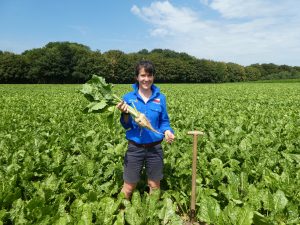
Robin Tait is a Soil First Tasmania committee member. Robin is coordinating the technical, on-the-ground activities that are taking place during the soil amendment trials.
The trials
There are six potato growers in Tasmania’s north participating in the organic origin fertiliser trials. They are using composted chicken manure variations including Neutrog pellets, as well as humate-based products.
“We’re using granular humate products to try and complex some of the fertiliser nutrients so that they would release over a longer period. The theory is, that we can reduce the input of mineral fertilisers by up to a third by adding humates. People have been suggesting this for a long time, but we have to test it,” Dave says.
The team has been flexible with growers and allowing them to trial differing types and levels of amendments.
“If their risk appetite was high, we were happy to support them doing some more extreme cutbacks on fertilisers and higher rates of organic amendments,” Dave says.
“Whereas we have growers whose risk appetite is lower, and they were keen to just substitute out a small percentage of their fertiliser for something else.”
At the time of writing, the Soil First team – assisted by three agronomists – have taken some stem counts.
“Next we’re taking sap tests on all sites – two sap tests across all the treatments on each site, which should give us the initial data,” Dave says.
The sap from petiole samples will be analysed by a local commercial lab with high precision instrumentation, and that has data in desirable ranges for each nutrient.
“So, we might be able to look back at a treatment where we put down composted chicken manure pellets or something like that, and say, ‘That one didn’t yield quite as well as the conventional treatment but if you look back on sap analysis, you can see it was short or had an excess of a mineral in the plant that might have been detrimental to the yield.’”
The next stage will be yield assessment, with measurements being undertaken in April. Results should follow in June.
The grower
Michael Heyes is a potato grower in Ringarooma, located in Tasmania’s north-east. He farms alongside his brother Richard and father Peter. He is a member of the Soil First group.
The Heyes family’s operation contract harvests around 15,000 tonnes of potatoes as well as growing cereals – including wheat and barley – and lupins. The farm also manages 200 Angus breeders.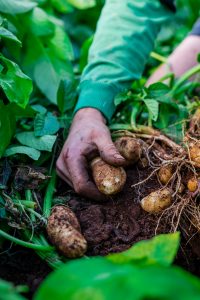
Michael is passionate about soil health and the regenerative farming concept. He also believes that the heavy use of fertilisers and crop protection products creates quality issues, and these can be linked to disease incidence in potatoes.
Michael’s currently hosting three trial plots using straw pallets and fertiliser, chicken manure pellets and a vermicast biological in-furrow liquid. He became involved with Soil First Tasmania because the group’s research aligns with his on-farm activities.
“We’ve been into cover crops for almost 10 years. We’ve put on compost and pig manure. I’ve tried combination crops and I’ve been using fish kelp and humates for five or six years now,” Michael explains.
“We don’t use any fungicides or insecticides on the farm, and we try to limit our herbicide usage. We do multi-species cover cropping. So, that’s what we’ve been involved in – regenerative farming before it was called regenerative farming.”
Soil and animal health has improved for Michael through his on-farm trials, but an increase in potato yield remains to be seen.
“I grew a trial plot with no fertiliser last year and noticed that the quality improved. The size was better, but my paddock yield dropped off (but there was less waste) – which is to be expected,” he says.
“But if I can work on different aspects and introduce biology and trace elements, and do a bit of sap analysis, then maybe the yield can pick up.
“That’s the great thing about these trials – we’re using chicken manure, straw pellets, natural fertilisers and carbon sources that might show to improve yield.”
Michael identified another potential long-term benefit for growers.
“This Soil First trial looking at reducing fertiliser usage and that just happens to tie-in with a huge increase in input costs. There’s some handy information that could come out of it.”
There’s a lot of enthusiasm within the Soil First Tasmania group, and it connects like-minded growers who are learning from one another in a field where, Michael says, knowledge is limited.
“Soil First is a group of people that is great to bounce ideas off. You can learn from those who have a tried a lot of different things.”
VegNET collaboration
VegNET 3.0 is a strategic levy investment under the Hort Innovation Vegetable Fund. The VegNET – Tasmania project team has provided technical information as requested by Soil First Tasmania, as well as supported some of the administration, grant application and other events over the last few years. It also assisted with a strategic planning session.
“The relationship came about during Theresa Chapman’s time as VegNET – Tasmania Regional Development Officer (RDO). Theresa shares a passion for soil science with the group, which has been the driver for her involvement,” current VegNET – Tasmania RDO Ossie Lang explains.
“The group is focused on preserving and rebuilding the fantastic soils we have in Tasmania. With most of the growers in the group including vegetables in their rotation – and their guiding principle of applying research at a paddock scale – it was a natural fit for VegNET to support Soil First where it was welcome.”
Other grower groups similar to Soil First can get involved in VegNET, which is a nationally-coordinated, regionally-delivered project.
“Growers can benefit from active involvement in VegNET through the national network that is at the core of the project,” Ossie says.
“While each region has its own priority areas, the strength of VegNET is in the shared network of RDOs and the contacts they have with regional and national research projects. This ensures that growers can tap into best practice from around the country and find out how to best use it in their production systems. They can also contact their RDO with specific questions and ideas.
“Based right around the country, the RDOs are really keen to work with grower groups and support them as they work towards their goals.”
Find out more
For further information about Soil First Tasmania activities, please contact Dave Roberts-Thompson on 0467 771 977 or email dave@vdqbulbs.com.au.
You can follow Soil First Tasmania on Facebook and Twitter.
Robin Tait’s Nuffield report can be found here.
To get involved in VegNET – Tasmania activities or find out more about the project, please contact Ossie Lang on 0430 380 414 or email ossiel@rmcg.com.au.
Cover image: Michael Heyes, a potato grower from Ringarooma and member of the Soil First Tasmania grower group. Photography by Prime Perspectives.

